Perhaps the thing that makes me happiest about writing Permanent Style is when it kindles a love of clothing in readers.
Men come up to me in the street, or at events, with a twinkle in their eye that says they have discovered the pleasures of good clothing. The style; the interest; the daily luxury of something beautiful against the skin.
We have to get dressed every day – there is no choice about that – and clothing matters. It is a huge part of how we are perceived by the people around us. So it makes sense to get dressed with intelligence and with taste.
But clothing is not important.
It does not change the world; it has no moral value. Even as a branch of the arts, fashion is a poor relation.
Clothing is like cooking. You have to eat every day, just like you have to get dressed. Understanding food and cooking well can be creative and absorbing. It is a necessity that can also be a rich, rewarding pleasure.
But cooking, like clothing, is not important. It comes someway down below politics, economics and science in its ability to change people’s lives and improve the world.
And as an art, fashion ranks below literature, music, theatre, film and, well, art.
Clothing can be a wonderful way to express aesthetic concepts. But its movements are largely derivative, products of broader art or culture. It does not have the depth or originality of fiction or poetry; it is unlikely to make us question how we live our lives.
Sometimes the fashion industry seems to forget this. And sometimes, in our neurotic way, do we.
Dress simply, intelligently and well. And don’t take it too seriously.
(Pictured top, Pierre Corthay in his Paris atelier. Not taking anything too seriously.)




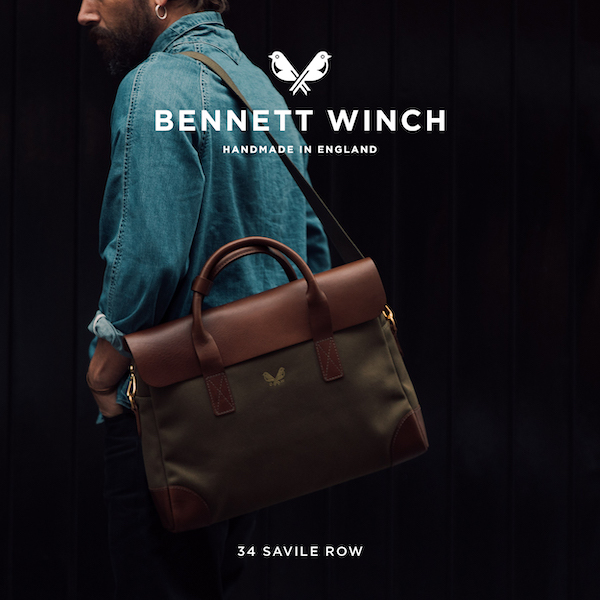







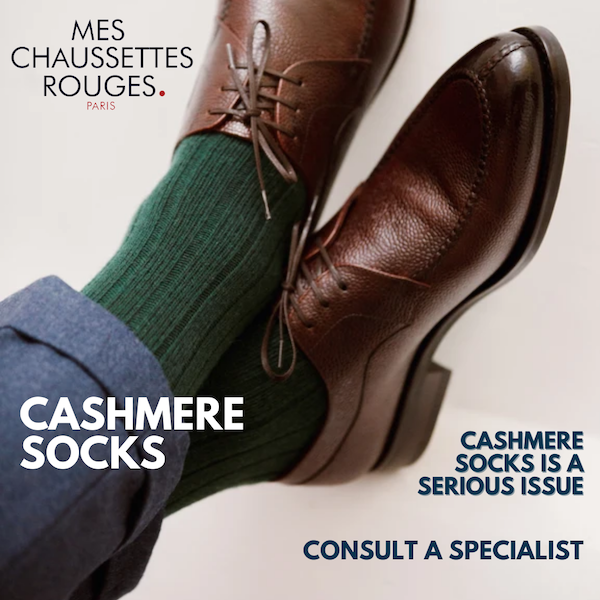










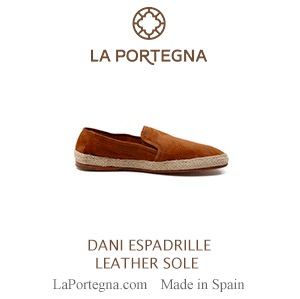
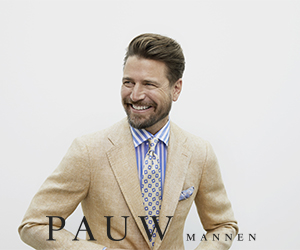

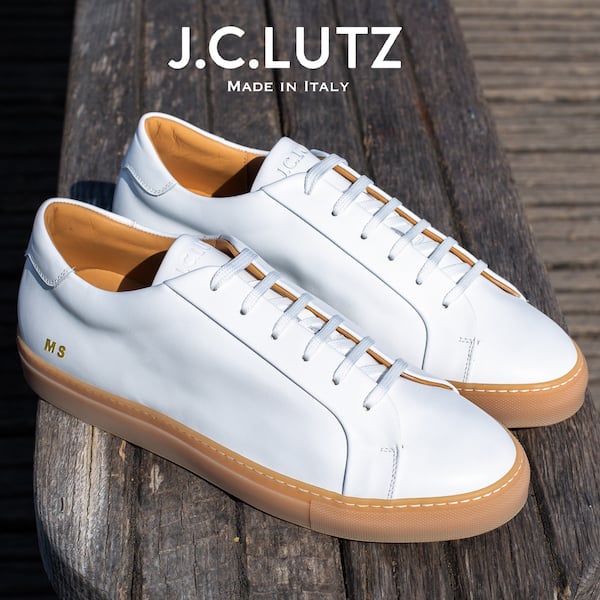

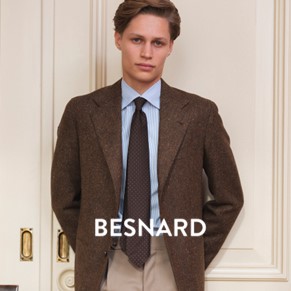



Fantastic. And by extension let us remeber that appearance is also not too important. In London there are all kinds of snobs about clothes, wealth, career etc. These are things to appreciate, enjoy and obviously high standards are great. But there is no moral relevance to them. Simon, the ultimate flâneur…
Your best post to date!
Good points, all worth remembering.
Best Regards,
Heinz-Ulrich von Boffke
Great post
Thanks. More along a similar line in this category by the way:
http://www.permanentstyle.com/category/philosophy
Great to know that there’s at least one menswear blog that’s not going to disappear up it’s own arse any time soon!
When we spend money on anything, also choose not to spend it on everything else. If I spend more than I have to on, say, clothing in order to for example to experience “the daily luxury of something beautiful against the skin”, then I also choose not to send money that could cure poor people from blindness, malaria, or serve another “important” goal.
As a man who recently spent in excess of €6000 on a suit, you should consider either taking your clothes seriously, or spend the money on something you think is important in the future.
Thanks Magnus.
It’s obviously not that black and white. I care enormously about my clothes, but I don’t pretend they are going to save the world. On the other hand, I and my family are involved in several charities that we are connect with personally.
What proportion of our income we should give to charity is a much bigger question, and not one best discussed here.
Thank you for a great blog, Simon. I read it almost every day.
You can easily make your own life dull trying to save the world and I don’t think any of us should try to save the world. Simply making it a little better is a task much better suited for the individual person. Being a good person and living a beautiful life should not be about missing out on good things.
When you buy clothing of superior quality and craftsmanship, you are making the world a little better in my opinion. I think that is part of what is good, what is important. It is all connected, and that is a serious matter.
Nice thoughtful comments, Magnus.
When I read this post, it makes me think of a larger implied concept to not take anything, clothing included, too seriously. In fact, now that I look back, this is mentioned in the very last words in parentheses.
Whether it’s success, money, luxuries, death, war, hunger, or any of life’s dramas and realities – I feel they’re all best taken with a light heart and a big smile, like Pierre. Some may think this goes too far… to take such things as hunger and war with a light heart, but I think it’s the easiest way to appreciating all of it: the good and the bad… ans seeing that everything has its place.
I guess we can all agree that elegance should not be conflated with other, more important, qualities.
However, as per the analogy you draw with food, I don’t think it’s right to say that excellence in clothing (or food) are “not important”.
Every time we put some effort in sourcing (quality, ethics, etc.) and preparing (nutrition, taste, etc.) a meal for our family we produce a small act of love, of everyday achievement. It will not solve global conflcits or make us philosopher-princes (what will?). But it does matter. It is part of the fabric of a life well lived, like the work we do every day even if we’re not the PM or a CEO. I think the same goes for dressing with elegance, personality and humour.
So, while I agree that a well-dressed person is not necessarily a good or useful person in the great scheme of things, I disagree that clothes are entirely unimportant.
Whilst clothes (and shoes) are physically not that important in the grand scheme of things. However I believe what is, (and also what I love about those who share this interest of ours) is about the relationships, friendships etc that are formed through attending events, numerous visits to stores and even through social media etc.
Very appealing thinking. I wholeheartedly agree with this.
Perhaps it’s not the most appropriate place, where I should post my questions regarding ankle boots, but Pierre Corthay’s picture might provide some link nonetheless. I’m about to buy, perhaps my first really good quality ankle boot. I have made some research and set my eyes on the following three makes.
– Cleverly makes some nice pairs exclusively for A&S. I haven’t tried these on yet.
– Edward Green – Westonbrit. I have tried these on recently and they are sheer brilliance.
– Corthay. I am very much intrigued about his work and since I have a planned trip to Paris very soon, I thought I might wait and see.
My budget would be around £1000. I am fairly aware of the prices of the first two, but I’m almost in the dark when it comes down to a rough price range of Corthay (chukka) boots. Though I found some reference points, but still I’m not sure. I already see that perhaps the biggest difference is in their design, hence my attraction to Corthay’s work.
My questions: Could you point out other striking differences? Any idea about the price range for Corthay boots in Paris? Regarding the sole, how substantial is the difference in durability between a rubber and a leather sole?
Any thoughts, comments, opinions, suggestions would be much appreciated.
Thanks
I believe the Cleverley boots at A&S are there regular line, not the Anthony Cleverley. If that’s the case, they are not at the same make level as EG or Corthay, but worth checking.
Between the other two, it’s really just a matter of style. Corthay will probably be a longer last, with a sharper toe – and also perhaps more subject to changes in fashion or taste. EG is a more standard English shape usually, and will feel more conservative. But definitely worth trying on both and comparing. You can try all three in London
Thanks Simon for your comments. Much appreciated. I will definitely try the rest of them on. Hopefully very soon.
I like the perspective. I strongly believe that the only way of understanding the fact that some of us in this world can buy expensive bespoke suits (I´ve become one of those persons) while some people suffer from war and hunger, is that from an individual perspective this is a personal moral dilemma that we will have to fully accept. I also believe that if we try to solve this personal dilemma we will either fail or else become numb to the world.
Great piece Simon! Jojo, I totally agree with you. There’s something very fulfilling about taking care over something and investing effort into learning the intricacies of a craft. Even if it’s something as frivolous as food or clothing…
Are you having a little wobble after that amazing, and amazingly expensive, Camps de Luca suit?
Ha! No, this post is actually something I’ve been working on for a while. These things tend to stew
“Dress simply,intelligently and well” is the best advice of your whole piece and worth following wholeheartedly! That premise is what drives the concept true or Permanent Style! Thank you Simon for stating this very true,but often overlooked perspective.
Though I agree with much of this article, I do not agree with the statement “clothing is not important”. It is far less important than a great many things. Though it doesn’t sounds as strong, I would say, “clothing is not *that* important”.
Agree Matt. Just not as punchy a headline!
Nurse, quick, Mr Compton is having a funny turn.
Crompton
Splendid, Simon. Thanks.
Clothes are both important and not. Politics exists to create one collective solution to all our problems. Economics is a large part of political government. Economics is ultimately about the production and use of wealth. Economics can be a good thing or a bad thing as we’ve seen.
Why do we desire wealth? To solve problems certainly, but also to acquire the things that make our lives happier or easier. There’s no other reason to desire it! A world without music, art, literature, good food, travel, sport, technology and, yes, nice clothes would be a barren place indeed. It’s not enough to be simply alive. Happiness has to be our ultimate goal.
The fashion industry, on the other hand, symbolises much of what’s bad about the world. Craftmanship is the antidote to fashion. It builds space shuttles, cathedrals, suspension bridges, underwater tunnels and even better-looking clothes to enhance our imperfections.
Yikes, what a can of philosophical worms opened here. As with others it is odd timing to display a very expensive suit (one of many owned) then disregard it as unimportant. As for cooking…after air and water food is the third most important requirement for human life. Importantly cooking makes food fit for consumption so yes cooking is very important. Cuisine and the many TV cooking programmes much less so. There are also many comments that raise the moral question of spending, charities and ones role in the world. This is particularly current given events in Bangladesh. However in the face of this I would answer that ones outer clothing is much less important than the inner person; a man in rags may not be morally superior to a well dressed man who works hard for others. In this world are our actions in the service of others or only for ourselves. In this regard clothes are unimportant. Quixotically, this blog serves others; the subject, for many, is an interest or even a hobby. It is also wrong to say that it is on the bottom rung of the art hierarchy. Few of the readers may own a classic work of art but we can own a fine suit. Furthermore it travels with us. The worldwide interest in fashion is driven by the fact that through it we can all create a personal look that is unique to ourselves. In many ways, though utilitarian, fashion is the ultimate democratisation of art.
Good point on the democratisation of art, although it’s extremely cheap and easy these days to consumer the finest music ever recorded, to visit galleries with the finest art, and to read the finest poetry. In fact, most of it is pretty much free.
Simon – this short post seems sharply at odds with your blog’s very purpose – and even its existence. To “Dress simply, intelligently and well,” one must “take it seriously.” A man doesn’t simply wake up one day a dapper gent, rife with elegance, élan and good taste. This “arrival” is the result of serious consideration, endless tinkering, and sartorial failure. Your blog is the perfect example of someone placing disproportionate emphasis – and importance – on not just the surface of clothing, but the construction of clothing, the relative merits of fabric and button choices, as well as the nuances and superiority of one tailoring house (or regional style) over another. Moreover (despite how you earn the funds) you are also spending a disproportionate amount of money on clothing (the average Brit spends just 295 pounds a year on clothing). Case in point, you’ll spend $7000 USD on one suit alone (that’s more than most Brits, or Americans spend on their entire formal wardrobe combined). The French have said, “The clothes make the Monk,” (and Jonathan Swift and others have some variation on this axiom). Clothes are both important to one’s image, one’s status, one’s sense of self, and they are important to you as someone whose daily life – in no small measure – revolves around clothes: both asking questions and providing answers about scarves, sweaters and sport-coats, as well as writing, publishing and signing books about the upper echelons of luxury finery, and attending parties at haberdashers and tailors alike (not to mention collaborating with boutique makers of accessories). That your blog is now financing your expensive and elaborate sartorial endeavors – and that your blog has made these inchoate dreams a personal reality for you (and vicarious, if not voyeuristic one for your readers) underscores that – well – clothes are important.
Thanks Wes. As I said, don’t take it TOO seriously. For all my love of clothes and time dedicated to it, I don’t lose perspective of things that are more important.
And as mentioned higher up in these comments, the title should probably be ‘clothes are not THAT important’
Great post. Let me put it this way: in one’s life, the way we dress should not be an end in itself. It should be a means to an end, and one should know what this end is.
Simon, a wonderful and timely post. One of the most valuable lessons I have derived from your blog is: invest in (not simply purchase) quality, fit and for the long term; avoid quantity and short term – dare I say it – fashionable pieces. This lesson has resulted in my wardrobe actually getting smaller – I’ve donated so much. I actually spend less now on clothing than I did 10 years ago! In a sense, this approach sits with your post. I wish you and all the readers the very best for the season. Thank you again ! D
And what really matters to us is people – other humans around us. You mention it in this post – clothing influences how we are perceived by other people. We care about those people and their perceptions more than we care about the clothing. Similarly when we fall in love with intricate craftsmanship and handwork, we really care about the people behind them. Far more important than the milanese buttonhole that few will notice is the knowledge of the skill and time that that buttonhole represents.
Taking clothing too seriously is at its worst when it leads to judging others based on their outfits.
“But cooking, like clothing, is not important. It comes someway down below politics, economics and science in its ability to change people’s lives and improve the world.”
I get the spirit of this but I think it is an oversimplification.
Very few of us are fortunate enough to be in a position to do something world-changing. We must instead do our bit to advance, or at least maintain, civilisation. How we look and the care taken in the preparation of the food that we share with those we love and respect are two vital elements of this.
Dressing well and eating well are two of the things that sustain me through a day spent facing life’s challenges. I am fortunate to be affluent, but I know that if I were poor I would still take care over my appearance, even if my clothes were bought at charity shops rather than Ralph Lauren. I would also eat well, even if that meant a simple plate of pasta cooked correctly with a well-made tomato sauce.
People who dress carelessly and tolerate bad food depress me immensely. Perhaps if I were a world leading scientist or politician I would derive sufficient self-worth from my primary function, but as a normal human being I need things like a well-fashioned tie knot, polished shoes or good food to keep my spirits up.
Politics, economics and science have achieved great things but are also responsible for great destruction. Not many wars have been started by the definition of “al dente” pasta or the merits of the button-down collar!
We don’t all need €6,000 suits. But it’s just wrong to say that good clothes and good food are not important.
“Clothes make the man. Naked people have little or no influence on society.”
Mark Twain
Not so unimportant 😉
“If most of us are ashamed of shabby clothes and shoddy furniture let us be more ashamed of shabby ideas and shoddy philosophies…. It would be a sad situation if the wrapper were better than the meat wrapped inside it.”
Albert Einstein
Clothes may not be important. However, they do matter; to ourselves and to others. They are part of how we portray ourselves to the world. Like it or not they allow people to judge us too.
As well as being functional we use them to complement our moods or our activities, to cheer us up, to help us fit in, to help us stand out, to show the tribe we are part of…. Where do I stop?
They are a part of being well mannered: Dress for the occasion, dress for the person, dress to put people at ease.
They might not be important but they are part of a life well lived, to be enjoyed, to be taken seriously when they need to be, for fun when they can be and always for pleasure.
Long time reader but I’ve never felt the inclination to comment, until today. Your best post yet and a sober call.
I agree completely with the sense of perspective but for me, anything that keeps crafts alive and artisans employed is “important”.
There are few things more honourable than keeping people gainfully employed and the wheels of industry turning. Particularly if they are making high quality British products.
As for appearance, it has been my experience that those that take a pride in how they look, take pride in what they do.
Simon
Please may you do a post on English ‘shabby chic’ as my Italian in-laws refer to it. Nothing gives me mroe delight then when my shirt collars begin to fray, or when a bag has sufficient patina to look as if it was been in the somme trenches!
Best,
G
Absolutely. Also known as country house chic. Will do
Hear, hear Simon, well said!
This reminds me of your ‘I am not a gentleman’ post, which I found slightly controversial.
Yes, clothes are not important and we should all take our hobby with a necessary grain of salt. Nevertheless, ‘clothes maketh the man’ and we can not deny browsing to your and other sites more often than necessary.
In my opinion, a passion for well-made clothes can be seen as sustainable in an economical as well as ecological sense. Being a ‘gentleman’ falls into the same line for me, trying to be courteous and elegant in all ways of life.
Finally, maybe not taking all this too seriously is the ultimate definition of the much-peddled ‘Sprezzatura’?!
Ah no, I would say that sprezzatura is the definition of giving that impression. But of course, the whole point of sprezzatura is that you are taking it very seriously, just hiding it well
Well, yes, that is what the Italians say or make believe. In regard to your philosophy post, I dare say that true elegance is about caring without taking oneself too seriously–never with the others though–they should always be handled with respect! Thus, for me some definition of Sprezzatura is about not being too serious, nor applied. Maybe room for a totally new post, but please no history of Sprezz*
Perhaps the aforementioned English ‘shabby chic’ is taking it not too seriously!
Perhaps a slightly tangential point but it is quite staggering just how differently people perceive you when you are well dressed (by which I mean wearing tailored clothing.) I don’t just mean in a superficial sense (although of course it is superficial to judge based on appearance!) but people tend to take you more seriously and think of you as more worldly. This in turn makes you behave accordingly and further reinforces their perceptions. Makes me think of the wonderful stories of the Dandies of Brazzaville.
I was a fan of this site before reading this post, and a bigger fan now. Thanks
Hi Simon
Off topic but I was hoping to pick your brain. Are there any general guidelines on horizontal button spacing on a double breast coat? I appreciate a lot will depend on actual body measurements. I’m approximately a 38″ inch. Does a 12cm spacing sound reasonable?
As always, thanks in advance.
“And as an art, fashion ranks below literature, music, theatre, film and, well, art.” I would never have said something like that. To me, rather, the person who loves literature, music, theatre, etc., also loves “fashion” or dressing well. It’s part of one’s whole perception of life. By the way, are you surprised to learn a woman gets style tips from your blog?
Nope, there have been a fair few over the years but they’re really really valued!
I think you take it totally seriously but then you realised it was ridiculous to take it that seriously, thats my shot on what you wrote. That said I think all the things said are wrong nearly
1.Firstly clothes are fun so why not dress good
2. Appearance does tell us about a person , just got off a bus listening to three hugely fat badly dressed women and that told me something=get ear plugs and sun glasses in winter
3.hoodies for instance are mindblowingly depressing and feel us with gloom but a well dressed person fills us with a kind of hope
Thanks Gary. My view on clothes has always been the same – loving them but also realising they are not the aim of life.
And I agree about all your points (except perhaps hoodies – oddly maligned in the world of knitwear, largely through plain snobbishness). Dressing well is great, but it’s not comparable to the arts, to charity or to general human wellbeing. It is a wonderful part of your life to master.
Great post, and although I have never thought of clothing in this way, I completely agree with you.
Good article.
I am amazed how the majority of PS readers are so obsessed in clothing. I have always had an interest in clothing but I’m not obsessive over them. I know what I like and what I don’t. That’s it. It’s not complicated and it should not be. If it is, you’re not appreciating your clothes.
Can u talk about style isn’t important please
Why don’t you think style is important Gus? You mean compared to bigger things like poverty, human rights, climate change?